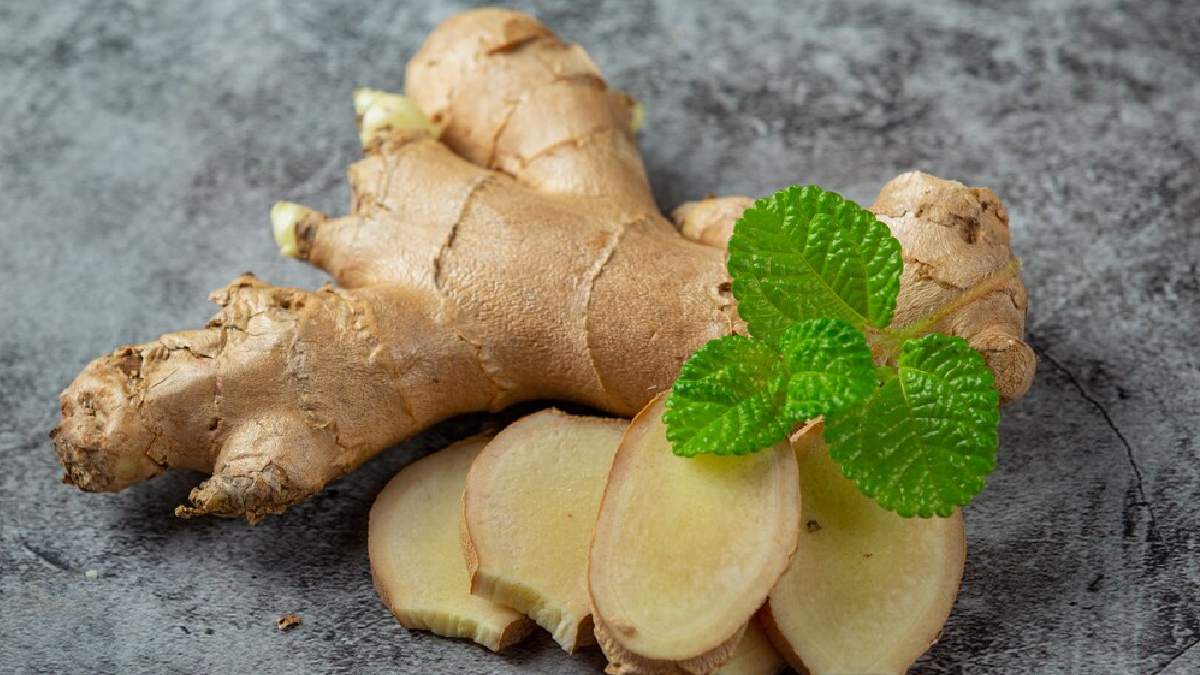
Ginger, a staple in many cuisines worldwide, has long been celebrated for its numerous health benefits. Whether fresh or dry, ginger offers a myriad of medicinal properties that can support overall well-being. However, when it comes to choosing between dry ginger and fresh ginger, understanding their unique qualities can help determine which one is better suited for specific health needs.
Table of Content:-
We asked our expert Mayuri Rastogi, Assistant professor of Nutrition and Dietetics Department, Sharda University to answer this question and here is what she shared with us.
Fresh Ginger
Fresh ginger, with its juicy and fibrous texture, is widely cherished for its vibrant flavour and aroma. Packed with nutrients like gingerol, fresh ginger possesses potent anti-inflammatory and antioxidant properties. Here are some key health benefits of fresh ginger:
1. Digestive Health
Fresh ginger is renowned for its ability to alleviate various digestive issues, including nausea, indigestion, and bloating. It stimulates saliva production and digestive enzymes, facilitating smoother digestion.
2. Immune Booster
Loaded with antioxidants and antimicrobial compounds, fresh ginger can bolster the immune system, helping to ward off infections and illnesses.
3. Anti-inflammatory Properties
Gingerol, the active compound in fresh ginger, exerts powerful anti-inflammatory effects, making it beneficial for managing conditions like arthritis and muscle soreness.

Also Read: Do You Have a Habit of Eating Late At Night? Here Are 5 Reasons You Should Stop
4. Nausea Relief
Whether caused by motion sickness, pregnancy, or chemotherapy, fresh ginger has been shown to effectively alleviate nausea and vomiting.
Dry Ginger
Dry ginger, obtained by drying fresh ginger roots, undergoes a different process that alters its composition and flavour profile. While it may lack the juiciness of fresh ginger, it offers its own set of health benefits:
1. Digestive Aid
Like fresh ginger, dry ginger is valued for its digestive properties. It can help alleviate gastrointestinal discomfort, bloating, and gas.
Also Read: Do You Have a Habit of Eating Late At Night? Here Are 5 Reasons You Should Stop

2. Anti-inflammatory Effects
Despite the dehydration process, dry ginger retains a significant amount of gingerol, enabling it to provide anti-inflammatory benefits similar to fresh ginger.
3. Longer Shelf Life
Dry ginger has a much longer shelf life compared to fresh ginger, making it a convenient option for storage and use over an extended period.
4. Concentrated Flavour
The drying process intensifies the flavour of ginger, allowing you to use smaller quantities to achieve the desired taste, which can be advantageous in cooking and baking.
Also Read: Do You Have a Habit of Eating Late At Night? Here Are 5 Reasons You Should Stop
Which One is Better?
Both fresh and dry ginger offer remarkable health benefits, and the choice between the two depends on personal preference and specific health needs. Fresh ginger may be preferred for its juiciness and milder flavour in dishes where its freshness is appreciated, such as salads, stir-fries, and teas. On the other hand, dry ginger can be more convenient for long-term storage and may be preferable in powdered form for baking, spice blends, and marinades.
Bottomline
Incorporating both fresh and dry ginger into your diet can provide a diverse range of health benefits. Whether you opt for the zesty punch of fresh ginger or the concentrated potency of dry ginger, adding this versatile spice to your culinary repertoire can enhance both the flavor and nutritional value of your meals while supporting your overall health and well-being
Also watch this video
Read Next
Avoid Juicing Leafy Greens Like Spinach Or Kale, It Can Increase Your Risk Of Kidney Disease
How we keep this article up to date:
We work with experts and keep a close eye on the latest in health and wellness. Whenever there is a new research or helpful information, we update our articles with accurate and useful advice.
Current Version